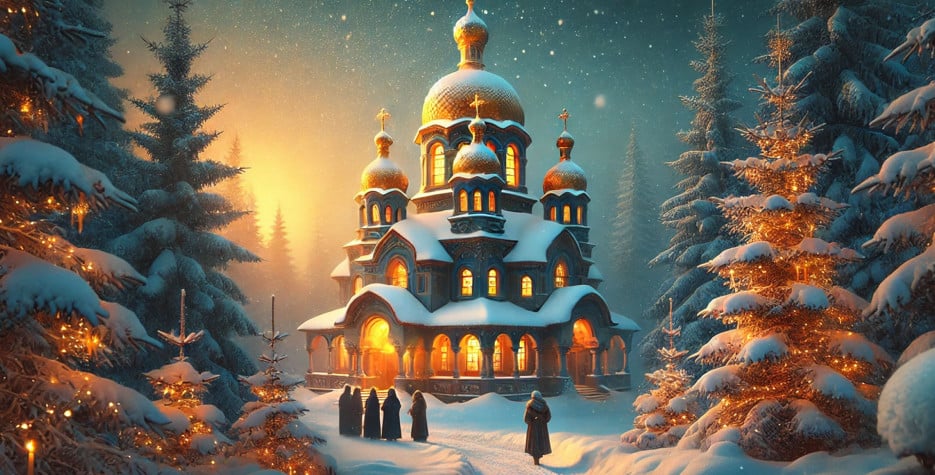Orthodox Christmas in Serbia
In Serbia, Christmas has been a national holiday since July 2001.
When is Orthodox Christmas?
The Orthodox Church recognises January 7th as the day that Jesus was born. Elsewhere in the world, Christmas is celebrated on December 25th.
Orthodox Christians are estimated to number between 250 and 300 million people. The largest number of Orthodox Christians live in eastern and southeastern Europe, including Russia and Ukraine. There are also significant Orthodox Christian populations in the Middle East and in Ethiopia.
The difference in the timing of the Christmas celebrations stretches back to 1582, when Pope Gregory XIII, ruled that the Catholic Church should follow a new calendar – called the Gregorian calendar, as it was closer to the solar calendar than the Julian calendar.
The Julian calendar now runs 13 days behind, so Orthodox Christmas falls on January 7th—through 2099; in 2100, when the world next omits a leap year, it will move to January 8th.
History of Orthodox Christmas
The Julian calendar had been established by Julius Caesar in 46 B.C.
Because it was the Catholic pope who ruled on the adoption of the new calendar, many churches not aligned to the papacy ignored it, such as Protestants and the Eastern Orthodox church. Protestants accepted the new calendar in the early 1700s.
In 1922, the patriarch of Constantinople decided that the Gregorian calendar should be followed for the observance of Christmas, but not for Easter, and this edict was followed by many of the other Orthodox churches.
The majority of Orthodox believers, including the Russian Orthodox Church, Egyptian Coptics, Ukrainian churches, Serbs, Macedonia, and the Mount Athos monks in Greece, celebrate Christmas on January 7th. The churches in Romania, Bulgaria, Cyprus, and Greece mark it on December 25th along with other Christian denominations.
The Armenian Orthodox Church observes Christmas Day on January 6th. This was the original date for Christmas until the 4th century, rather than some Julian/Gregorian adjusted date.
Orthodox Christmas Traditions
At midnight on Christmas Eve, the festive liturgy is served in all churches. At the end of the service, a lighted candle, symbolizing the Star of Bethlehem, is brought out and placed in the middle of the church.
Christmas marks the start of a 12-day season commonly referred to as Christmastide or Yuletide. According to the Orthodox canons, believers should offer prayers glorifying Jesus Christ. In the folk tradition, Christmastide has always been a time of festivities, outdoor games, and performances by mummers, fortune-telling, and caroling.
The Christmas period ends with the feast of the Epiphany on January 19th, which marks the baptism of Jesus Christ.
Food is also an important part of Orthodox Christmas celebrations, and the customs vary in different regions. In Russia, a special porridge made from wheat and rice called "Kutya" is made on Christmas Eve and they are eaten often from a communal bowl symbolizing unity. Some parts also have a tradition of throwing food up to the ceiling. It is believed that if it sticks to the ceiling, it will bring good luck.
Christmas Traditions in Serbia
In Serbia, Christmas Eve is known as Badnji dan, and after dark, it becomes Badnje veče. Families use this day to make preparations for the oncoming Christmas celebrations.
Similar to the yule log, there is the traditions of the 'badnjak' in which an oak log or branch is brought into the house and placed around the fire on Christmas Eve. They also have the 'strong water' tradition, involving a girl or woman collecting water from a well, spring, or stream on Christmas morning. This water is believed to have special beneficial powers to strengthen health.
Another tradition, though outdated and not widely followed by the majority of the Serbian population anymore, is 'Detinjci, Materica, and Oci', the three Sunday's before Christmas Day, where gifts are exchanged. Children give gifts on Detinjci, married women on Materice, and married men on Oci. To receive the gift, a game is played where the recipient of the gift is tied up and must hand over gifts to pay their ransom.


